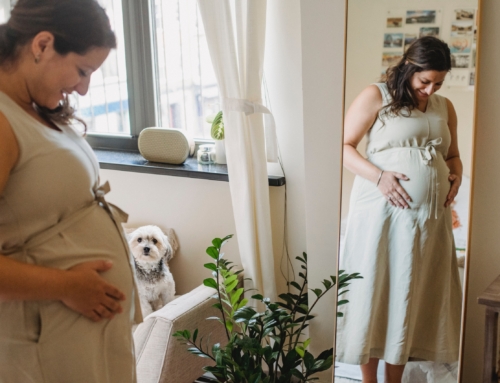It’s the start of a new year, and the perfect time to begin a joyful and fulfilling journey. Are you considering becoming a surrogate mother in 2022? If so, we want to make sure you have the information you need to make your experience as safe, smooth, and rewarding as possible.
Read on to find out whether surrogacy is right for you, how to find the best surrogacy agency for your unique needs, what to know about Covid-19 and pregnancy (including the Omicron variant), and more.
Is surrogacy right for me?
Becoming a gestational surrogate is one of the most incredible and life-changing decisions you’ll ever make. But of course, it’s important to be 100% sure that this is the right choice for you and your family … and that you’re physically and emotionally prepared to make this commitment.
To help you determine if you’re ready to be a great surrogate mother, here are five questions to ask yourself:
1. Am I physically healthy enough to be a surrogate mother?
The physical requirements vary from agency to agency, but if you’ve carried previous pregnancies to term with no major complications, had rather easy pregnancies and deliveries, and have a healthy BMI, these are good signs that you’re healthy enough to be a surrogate.
Once you partner with a surrogacy agency, you’ll be guided through a medical screening process to help ensure surrogacy is safe for you and the baby you’ll carry.
2. Am I emotionally prepared to be a surrogate mother?
Surrogacy is a beautiful experience, but it can also be emotionally challenging at times. At Surrogate Parenting Services (SPS), prospective surrogates and their partners (if applicable) undergo a psychological screening to make sure they are prepared for the potential emotional difficulties of the process.
After partnering with us, our surrogates also attend monthly support group meetings led by a licensed mental health professional. These meetings not only help surrogates navigate the emotional ups and downs of the process, but they also provide a sense of community during their journey.
3. Am I motivated for the right reasons?
There are countless experiences that inspire women to become a surrogate. Maybe you know someone who loved being a surrogate or who grew their family with the help of a surrogate. Maybe there’s a goal you’re trying to achieve and need help funding it. Your motivations are incredibly personal, and we’d never judge them.
That said, we want you to have the most positive experience possible as a surrogate, and we know from experience that altruistic motivations are much more powerful and sustainable than financial ones. Make sure you’re being honest with yourself about what’s inspiring you to consider this life-changing adventure.
4. Do I meet the surrogacy agency’s requirements?
Surrogacy agencies can vary significantly in their requirements for prospective surrogate mothers. Take care in choosing a reputable surrogacy agency because it will have a major impact on your experience and success as a surrogate mother.
To become a surrogate with SPS, you must:
- Have had one or more easy pregnancies and deliveries.
- Be between the ages of 21 and 40.
- Have at least one child of your own living with you.
- Be a non-smoker.
- Have reliable transportation.
- Be financially stable.
- Have a desire to help others in a special way.
5. Do I have the support I need?
Having a surrogate support system is absolutely essential for a successful journey. Pregnancy is taxing under any circumstance, but as a surrogate mother, you’ll also be navigating fertility treatments, additional doctor’s appointments, and a natural range of emotions. Your support system helps to ease that burden and provides the emotional and practical support you’ll need.
At SPS, you’ll have a case manager (who is always available to offer guidance, advocacy, or just an understanding ear), and the intended parents. You’ll also have a team of doctors and mental health professionals looking out for your wellbeing. In addition to this “built-in” support system, make sure you have a network of friends and family who are ready to provide both emotional and practical support.
Want more help determining whether surrogacy is right for you? This article will help.
How do I find the best surrogacy agency for my needs?
Whether you’re interested in becoming a surrogate or using a surrogate to expand your family, you’ll likely work with a surrogacy agency to help you navigate your journey.
As you begin conducting your research and interviewing agencies, you have two basic goals: to find the reputable agencies that work in your area, and to identify which surrogacy agency is best suited for your unique needs. Here are four questions to ask:
1. What’s the agency’s history and/or level of experience?
While there’s no guarantee that a long-established surrogacy agency will provide the superior service you deserve, you want to choose an agency that has a proven record of successful journeys. Ask questions like: how long has the company been in business, how many families have they helped to create, and how has their reputation evolved (or remained consistent) over the years.
2. What is their screening process for both surrogates and intended parents?
Both parties should be physically, mentally, and emotionally prepared for the process and educated on the responsibilities and risks.
Learn more about the screening process for both intended parents and surrogates.
3. How are surrogates and intended parents matched?
The best agencies take into account factors such as personality, expectations for the journey, and the level of communication desired.
4. Which services do they offer?
Services vary from agency to agency. Larger, more established agencies will be able to offer more services—everything from matching to case management to legal services.
Get more tips on finding the best surrogacy agency for you here.
How will Covid-19 impact my surrogacy journey in 2022?
If you’re an intended parent or a potential surrogate, you probably have many questions and concerns about Covid-19.
The situation is ever evolving (particularly with the new Omicron variant), but we want you to have the information you need to keep yourself and your family healthy. The health and safety of our surrogates is our number one priority, and we also care deeply about the health and well-being of pregnant women everywhere.
As always, please be sure to consult your physician for personalized medical advice.
Current recommendations on the Covid-19 vaccine for pregnant women
According to the CDC, here is what you need to know (as of December 2021):
- People who are pregnant or recently pregnant are more likely to get severely ill with COVID-19 compared with people who are not pregnant.
- Getting a COVID-19 vaccine can help protect you from severe illness from COVID-19.
- COVID-19 vaccination is recommended for people who are pregnant, breastfeeding, trying to get pregnant now, or might become pregnant in the future.
- People who are pregnant may receive a COVID-19 vaccine booster shot.
- Evidence about the safety and effectiveness of COVID-19 vaccination during pregnancy has been growing. These data suggest that the benefits of receiving a COVID-19 vaccine outweigh any known or potential risks of vaccination during pregnancy.
- There is currently no evidence that any vaccines, including COVID-19 vaccines, cause fertility problems in women or men.
The American Society for Reproductive Medicine (ASRM), the world’s leading organization in the field of reproductive medicine, recommends vaccination for people who are trying to get pregnant or planning to conceive. The ASRM provides more information on COVID-19 and pregnancy here.
The American College of Obstetricians and Gynecologists (ACOG) and the Society for Maternal-Fetal Medicine (SMFM) also recommend the COVID-19 vaccination for pregnant individuals.
Fertility clinics and Covid-19 vaccination
According to the ASRM, patients undergoing fertility treatment should be encouraged to receive a COVID-19 vaccine when it’s available to them. There’s no evidence that vaccination before or during fertility treatment will impact the outcome of treatment in any way.
The Omicron variant and pregnancy
As of January 2022, experts are still learning more about the Omicron variant. However, the CDC believes that Omicron spreads more quickly than the original SARS-CoV-2 virus, and it’s expected that anyone infected with the Omicron variant can spread the virus to others, even if they are vaccinated or don’t have symptoms. Current vaccines are expected to protect against severe illness, hospitalizations, and deaths due to infection with the Omicron variant.
In regards to the Omicron variant and pregnant individuals, Sherry Ross, MD, OBGYN, and women’s health expert at Providence Saint John’s Health Center in Santa Monica, California says, “It is still not known whether the Omicron variant causes more severe disease in pregnant women compared to other COVID-19 variants.”
According to Charles Bailey, MD, medical director for infection prevention at Providence Mission Hospital and Providence St. Joseph Hospital in Orange County, California, there is no reason to believe that Omicron presents any greater risks to pregnant people as compared to other variants.
The CDC provides more information about the Omicron variant here. And you can learn more about Covid-19 and your surrogacy journey here.
For more information on how to become a surrogate mother in 2022, please visit our website.
Learn More About Becoming a Surrogate with Surrogate Parenting Services
Surrogate Parenting Services is proud to celebrate 30 Years of helping to bring dreams to life! Founded in 1990, Surrogate Parenting Services (SPS) is a full-service surrogacy program that offers both parties an exceptionally supportive environment throughout the surrogacy relationship. We’re passionate about creating ideal matches between surrogates and intended parents, so the journey is fulfilling for both sides and the future child is brought into this world in the best possible circumstances.
Learn more about our Surrogacy Program online or by calling (949) 363-9525.










Keep In Touch